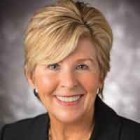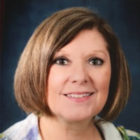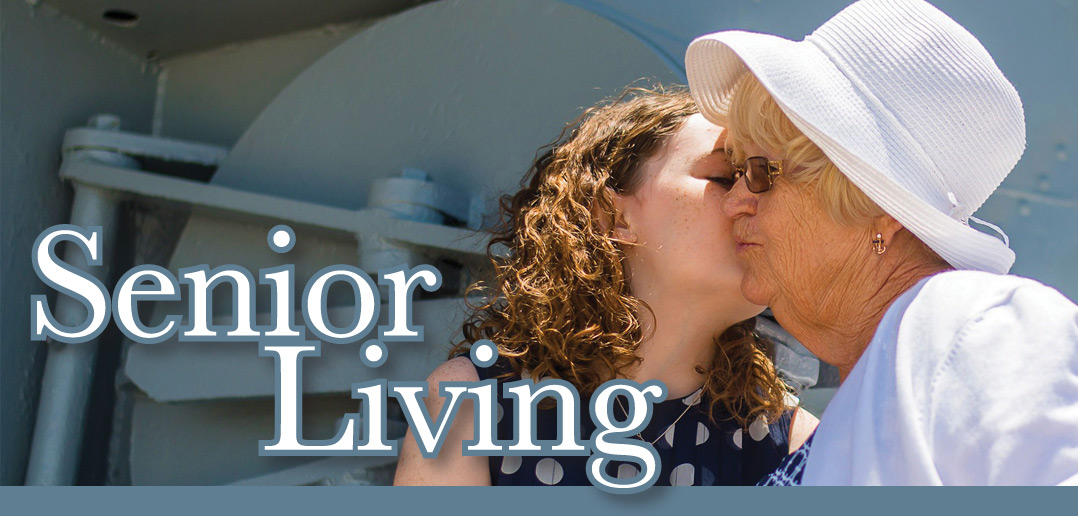Senior Living
As the senior population in our community grows, we are proud to report that the resource-rich Omaha Metro area has stayed on pace with meeting their needs. Not only that, but in an effort to best anticipate the needs of the future, there is always work being done to improve current services and to fill in any gaps as they are identified.
Across the spectrum of senior care, there will always be new problems to address and solutions to be applied as things change with time. However, much remains the same every year at this time with respect to preparations for the winter months or planning how you’ll spend the holidays, and it’s also one of the more ideal times to adjust to any changes that need to be made, such as a move or integrating a higher level of care, if deemed necessary. As such, we’ve taken the opportunity again to catch up with our local experts, who have graciously provided helpful information for our readers about a host of timely topics related to senior living.
With the baby boomers now entering their senior years, it makes sense that as such a large population transitions, there will be plenty going on in an effort to accommodate that influx. As this is ongoing, many professionals in our community are contributing their efforts to ensure that all seniors are receiving what they need to remain healthy and happy despite the various challenges that are currently present.

Jim Laughlin
Home Nursing With Heart
“There are a lot of issues facing seniors today but a few that stand out to me include the cost of healthcare as well as disabilities stemming from cancer and heart issues,” notes Jim Laughlin, Vice President of Home Nursing With Heart. “Seniors are living longer and due to this, their retirement savings struggle to accommodate the extra years. This combined with the rising cost of healthcare creates a challenging situation for not only the senior, but the family as well. The National Council on Aging (NCOA) has resources and tools to help find ways to offset these financial burdens.
Another area of concern is when a disability is the result of cancer and heart conditions like heart attacks, stroke, heart failure or any other acute health issue. When disabilities arise, the independence of the senior is compromised. Although hopefully they can overcome the disability, sometimes they cannot. In this scenario major decisions regarding living arrangements, costs, government support and family support must be made. I’ve always been a proponent of the services provided by CareMatrix for these decisions as well as any Medical Social Worker, who will be able to present a wide array of support options, some of which many people aren’t aware of but would benefit from considering.
In addition to the services and community support available, I constantly talk to seniors worried about how they’re going to pay for skilled nursing and therapy services in the home. Seniors have worked their entire life paying into the Medicare fund and it’s time they take advantage of the benefit they’ve earned. Their generation tends to fend off the thought of asking for help, but this is a benefit that they’ve earned for themselves. If skilled nursing and/or therapy services are needed at home you can call any home nursing company like Home Nursing With Heart and we can provide the information for what will be covered and for how long.
Smooth transitions occur when everyone in the circle of care is involved and informed. From the senior, the family members, caregivers, nursing, therapy, and the facility they’re transitioning to, the more communication, the better.”
With the reality now that many adult children are trying to care for their aging parents while also raising children and sometimes even grandchildren, there can be ongoing challenges present in the lives of all involved.

Michaela Williams
Care Consultants for the Aging
“Navigating our long-term care system can be overwhelming and problematic for people taking care of seniors in our society,” says Michaela Williams, President of Care Consultants for the Aging. “It can be somewhat difficult to research available options when making decisions for a loved one, especially during a crisis situation. If you are a caregiver for someone, it is helpful to know what government programs are available in order to determine what financial resources and options your loved one has and to work on getting legal affairs in order.
Throughout ones care journey, the reality of needing more than one service to care for your loved one is high. Those who know what senior services are offered tend to make better choices when they need to change or add to their care plan. Care Consultants produces the ElderCare Resource Handbook. The Handbook offers a complete listing of senior services in the Omaha and Lincoln metro areas. It is available in print and can be viewed for free online at www.careconsultants.com.”
She also expands on several other key issues impacting seniors, their loved ones, and even caregivers in the near future with the onset of winter weather.
“Winter is approaching and tends to lead to higher levels of isolation. Caregivers can be utilized to help keep seniors active and safe. They can come over and visit with a senior who may not receive a lot of visitors. Or they can take the individual out on a walk, to get a bite to eat or to participate in activities. Sometimes those simple encounters that we take for granted can make a huge difference in a senior’s life. Senior centers and other organizations around town offer bingo, card games and clubs for seniors to socialize with people with similar interests.
When assessing a senior’s living environment, it is important to consider safety, nutrition and socialization. Not only is it necessary to make sure they are physically safe, it is important to make sure they have access to proper food as well as opportunities to socialize and keep mentally stimulated. If you have concerns about your loved one’s safety, it is wise to seek help. Home care can always be a good first step when you are looking for care. Sometimes having companionship, someone to prepare meals or assistance with personal cares can be just what is needed to help the senior keep their independence. Care Consultants can find caregivers to work with seniors from one to twenty-four hours a day. It can be flexible and adapt to your changing needs.”

Roxann Rogers-Meyer Immanuel Communities
Along the same lines of understanding the different types of resources that are available to seniors, Roxann Rogers-Meyer with Immanuel Communities also points out, “The choices for senior housing are often misunderstood. Many people believe their only option is a nursing home. Our goal at Immanuel Communities is to educate the public on the types of senior housing and to guide and advise families on making an informed decision.
Seniors and their families could benefit from doing their homework and researching options before a health crisis forces them to make a decision. Immanuel’s website, Immanuel.com, features a questionnaire that can guide families on the appropriate care level.
In the past few years, we have experienced more families visiting our communities at a time when their loved one can no longer live safely at home. In many cases, the senior has waited too long and independent living is no longer a choice. Assisted living is the appropriate level of care and that can be difficult for the senior and their loved ones to comprehend.
Immanuel Communities hosts the University Series. This educational forum gives seniors the opportunity to explore the community and to better understand independent living. Research shows that seniors who move into independent living when they are healthy live an average of seven years longer.”
She also touches on another important aspect of senior living, the opportunity (or lack-thereof) for social interaction. “Social isolation can impact the health, well-being and quality of life for seniors. It is important for seniors to stay active – physically, cognitively and socially. Immanuel Communities has a wellness philosophy that addresses the Body, Mind and Spirit. Our residents participate in Wii tennis tournaments, bocce ball tournaments, competitive bridge and The Landing at Williamsburg Village produces an annual Melodrama featuring the residents and staff. Immanuel AgeWell Centers focus on physical health by tailoring individual plans to improve well-being. Spiritual health is addressed through Bible study, worship services and the exploration of all faiths. Staying connected is the key to avoiding social isolation.”

Jennifer Dil
Comfort Keepers
Jennifer Dil with Comfort Keepers Omaha further advises, “There are generally three key issues for seniors: health, finances and housing. Omaha has an amazing group of builders, planners and senior housing options, from buy-in senior apartments to independent living and assisted living, seniors have more choices than ever. Don’t want to mow? Try the apartment. Want prepared meals and a weight room? Try independent living! It is wonderful for us at Comfort Keepers to see the options continue to grow because we work in all of those settings. As health declines we go wherever our client calls home. We help keep our clients independent in all of those settings.
The issue of finances directly affects your choice in housing and care options. If you have a long term care policy and savings, you have more choices: you could stay in your home with care as needed or move to a community with around-the-clock care. Without preplanning, you may find your choices are uncomfortable.
Estate planners, older friends and family, insurance agents and physicians are all examples of wonderful resources to answer the question: What should I be preparing for when I am in my latter years and no longer as strong as I am now?
Also, you’d be surprised at home many different resources are available that you may not have any idea about. Comfort Keepers works with those who are injured, recovering from illness or who need help due to the aging process, but I find many people do not know my industry exists. Most people expect to remain healthy; taking time out of an already busy schedule to find out who to turn to if you injure your back slipping on the ice isn’t in the list of things to do. It is an immediate learning curve when needed.
The same applies to aging–the expectation is that the only things on the senior checklist are the will and advanced directives, and so many people don’t even get to those. It is hard to think about who will come into your home to help you get dressed and showered at age 91 when you are a healthy 67 year old.
As mobility becomes an issue, things in the home that might be dangerous are also commonly overlooked until they become a problem. Do you have knee and hip problems now? Think you might need a wheeled walker in 20 years? Most walkers do not roll well over carpet. Do you have carpet in areas of your home that are highly used? If you plan on staying, you might want to remove it.
Did you know standard sized wheelchairs cannot fit through many household doorways? If you have a disease that will eventually have you in a wheelchair, you may want to modify strategic doorways in your home to accommodate your chair.
It is never too early to put grab bars near the shower for stabilization getting in and out of the tub/shower. Even children can benefit from the bars in a slippery situation.
Finally, regarding smooth transitions, check your stoicism at the door and accept help from others. We were never meant to age alone, meaning with no one to help us. It is hard to adjust to the fact you need help getting the groceries bought and put away, or that you need helping toileting. If you do not accept the help, small inconveniences (like having someone help you wipe) compound into major problems (like a urinary tract infection that leads to a temporary state of dementia that lands you in the hospital on very strong medication). That is a surprise, isn’t it? Unfortunately it happens all too often.”

Lisa Arp
SilverRidge Assisted Living and Memory Support Community
It truly is of the utmost importance for seniors to live in an environment where all of their needs are being met and they are receiving the level of care they require, not matter where that may be. One of the main reasons, especially in the winter months, is avoiding a catastrophic event after which the senior may end up in a nursing home instead of an assisted living facility. Lisa Arp with SilverRidge Assisted Living and Memory Support explains, “If you have a family member or a friend that has a family member who is on the border of living by themselves, and you are not sure, ask yourself this: Do you see them on a ladder? Shoveling snow? On the roof? Mowing the lawn? Raking leaves? Driving long distances? Any of these things could lead to a broken hip, arm, or shoulder, driving accident or worse. It is up to family members or friends to notice that these things are out of the realm of possibilities for these folks. Have a friend or hire someone you ask? You could, but what if one has dementia and forgets that they hired someone and does it anyway. All of the above leading to an event that puts them in the hospital is avoidable if you are proactive and have a conversation early. Introduce the topic to them ahead of time. Make them understand that they are very much involved in the process. If they do have dementia, the conversation is really not going to be a good one. But if they are in the early stages they might still eventually decide to talk about it and they may make it sound like their idea. Go along with it. Don’t argue. If it is their idea, absolutely fantastic! That will make life so much easier for you! Stick to your guns though. This is a touchy talk but very necessary! Social interaction and activity out of the house is important for seniors as well as anyone. Winter depression is not any different than any other seasons. All you have to do is shut the shades. Interaction with someone that is their same age and in their same situation is helpful due to the fact they are not feeling alone and isolated in their situation.”
Finding the best mix of appropriate services to fit a person’s unique needs is often just a matter of filling in the gaps. In-home care is a great example, but there are also other gems to consider as fantastic short-term solutions.

Kathy Boroff Remington Heights
“We currently have four assisted living apartments that are completed furnished like a hotel. These are intended for those who need short term stays, such as when family or caretakers leave for vacation or has surgery, need to arrange for respite care, etc.,” advises Kathy Boroff with Remington Heights. “Once people hear about our program, they always comment that they wished they would have known sooner!”
She adds, “Another one of our offerings that not many people know about is that we’re the only facility in Omaha that has staff trained and certified to teach Rock Steady Boxing, a fitness program for those with Parkinson’s disease. There are more people per capital in Nebraska with Parkinson’s than in any other state in the nation, so we felt strongly about introducing it to those in our community. Michael J. Fox, one of the most visible faces of those with Parkinson’s in the U.S., participates in this program and has been doing amazing!
There will continue to be more specialized offerings like the ones I’ve mentioned for our senior population, making the future one of hope for maintaining a high quality of life as we age.”
The common theme with the helpful tips we’ve covered is the importance of preparing as much as possible—for the future, for a smooth transition, for what’s to come on our journey in life. As you’d assume, this is also particularly significant when a move becomes necessary.

Tyler Whalen
TWO MEN AND A TRUCK® Omaha
“I always suggest that seniors and their families start planning as early as possible so that the person doesn’t start to feel overwhelmed and stressed out,” says Tyler Whalen, co-owner of the Two Men And A Truck Omaha franchise. “When it comes to making some of the big decisions it’s advantageous to get other family members involved so there’s more than one person helping with decisions, which can also cut down on the stress.”
For seniors especially, there is also generally some downsizing that needs to happen with a move from their home to an apartment in a retirement or assisted living community.
Whalen advises, “It’s never too early to start downsizing. A great way to downsize is to have a garage sale or consign items at a local thrift shop. This allows the individual to make some extra money as they clear unneeded items out of their house.
Most seniors have lived in their houses for 30+ years and don’t realize how small the new space is that they are going to be moving into. After a particular apartment is chosen, it can be helpful to ask the complex for an overhead drawing of their new space. Use a pencil and start drawing in what furniture you will take and where it will go in the apartment. This will give you a good idea of your plan of action moving forward. This way you’ll avoid bringing too much furniture with you and will also make for less decisions needing to be made on move day, which will help cut down on stress.”
As far as logistics, he adds, “Our typical move really does consist of two men, but when doing some moves into senior living we can send 4-8 men to help reduce move time. Our services that have been popular among our customers is scheduling one day to come into their home to get everything packed, make the move to senior living, and get everything unpacked and organized all at once. When doing a full-service, one day move for a customer we’ve found that it can really cut back on the severity of the impact the move has on them.”
With so much for seniors and their loved ones to consider, it truly does help to simply have someone to talk to about anything, big or small. As with most other things in life, it’s all about using the available resources to your advantage. There are certainly plenty within our community, and there’s no time like to the present to begin familiarizing yourself with what’s out there. Planning for the future encompasses what might happen tomorrow or next month as well as years down the line, and often our decisions now impact those that we will face later on, so with that in mind it’s never too early to ask the important questions and search for what the right answers are for you and your family as you continue down your path in life.

